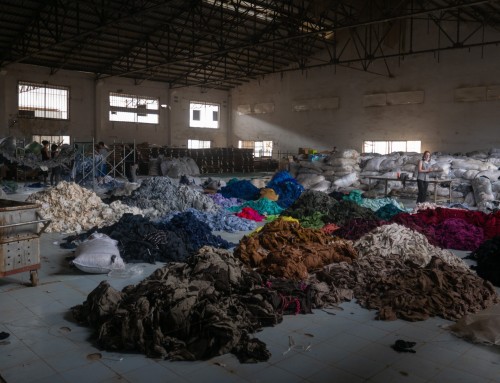In 2015 Textile Consult wrote a blog ” Its coming back did it ever go away?” highlighting the similar circumstances of the Vinyl Record format and the UK Textile Industry.
Our latest blog is a return to this these for an update on the situation.
Based on reports in the mainstream press, you’d be forgiven for thinking that the British textile industry is struggling; with jobs as well as traditional skills being lost forever as manufacturing is shipped permanently abroad. Commentators point to the decision of larger brands to shift their production overseas as proof of this downturn, with the press recently reporting the likely closure of one of the factories of British shoe brand Clarks. But this is far from the reality of the industry. Although larger, middle range brands have moved some of their manufacturing abroad, other areas of British textiles have been continuing to prosper. As with the vinyl record industry, loyal consumers attracted to quality and heritage are boosting UK textiles; with both industries currently great examples of strong, forward-looking British businesses.
What do the vinyl industry and British textiles have in common?
Although the connection might not be immediately obvious, the British textile industry has a lot in common with vinyl records . As with high end British produced fashion, vinyl always had a loyal, albeit niche following. Once thought of old fashioned by the mainstream, the vinyl industry has now established itself as a luxury item with a price tag and dedicated consumers to match. Vinyl collectors now expect quality and extras, part of the attraction of the product and one which demonstrates the necessary shift in mindset of the industry. The UK textile industry has had to shift its approach too, this time from the mass onshore production of the past in order to be successful. British textiles has changed its strategy to focus on strengths such as heritage, quality and traditional skills such knitting, allowing UK textiles to become a growth industry. Contrary to common media reports, both vinyl and British textiles have always been doing well by focusing on the core strengths of their product offerings; and they’ll continue to do so.
How is the UK textile marketing remaining so successful?
The British textile industry is still hugely successful, and should not be judged on the decisions of more mainstream brands to move their production overseas. A recent report by Alliance stated that investment in UK textile manufacturing is predicted to create 20,000 UK jobs by the end of 2020. Consumers, designers, brands and retailers are all increasing their demand for textiles produced in the UK. Driving this increase is a huge mix of factors, including concern from consumers about the environmental impact of fast fashion production, support for traditional British textile industries and fashion designers keen to buy British fabrics to create genuinely British labels. Furthermore, as customers demand shorter lead times for their fashion items, UK fashion manufacturers are becoming keener to keep production at home. Greater efficiencies in UK manufacturing allow for more supply chain and cost efficiency, creating opportunities for British manufacturers to compete more effectively in a global marketplace.
The future is bright for British textile manufacturing
Instead of a gloomy outlook for UK textiles, the future is actually very positive. As with the shift in the vinyl industry becoming more mainstream, the UK textile industry is being boosted by a current desire to buy locally, support UK designers and traditional manufacturing skills and techniques. The decision of some mainstream fashion brands to move production overseas does not signal the demise of the UK textile industry. UK fashion will continue to do well by focusing on its strengths of provenance, heritage and quality; resulting in strong market growth and consumer support.
Textile Consult operates worldwide and in the UK, consulting on a variety of management, training and sustainability issues within the textile industry. Contact us today to find out how we’ll work with you to find effective, sustainable solutions for your company.


